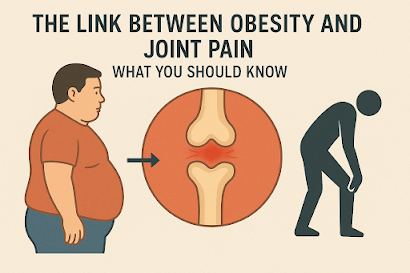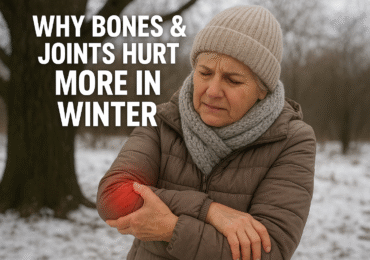Obesity is a growing health concern worldwide, and its impact goes beyond cardiovascular issues and diabetes. One of the less discussed but equally serious consequences of excess body weight is joint pain. Understanding this link is essential for maintaining mobility and overall quality of life.
How Obesity Affects Your Joints
Excess body weight puts additional stress on weight-bearing joints such as the knees, hips, and lower back. Over time, this increased load can accelerate wear and tear on cartilage, leading to osteoarthritis and chronic discomfort. Studies show that even a modest weight reduction can significantly reduce joint pain and improve functionality.
Key Points:
- Increased Mechanical Stress: Extra weight directly pressures the joints, causing pain and
- inflammation.
- Cartilage Breakdown: Continuous stress accelerates cartilage degeneration, leading to stiffness.
- Inflammatory Response: Obesity can trigger systemic inflammation, further worsening joint issues.
Common Joints Affected by Obesity
Obesity does not impact all joints equally. The most commonly affected areas include:
- Knees: High susceptibility due to weight-bearing function.
- Hips: Supports body weight; excess stress can lead to degenerative changes.
- Lower Back: Extra abdominal weight can strain spinal joints, causing discomfort.
- Ankles and Feet: Supporting the body’s full weight, leading to chronic pain in some individuals.
Symptoms to Watch Out For
Joint pain linked to obesity can manifest in various ways. Recognizing symptoms early is crucial for prevention:
- Persistent pain or tenderness in knees, hips, or back
- Stiffness, especially after prolonged sitting or waking up
- Swelling or warmth around affected joints
- Limited range of motion and difficulty performing daily activities
Lifestyle Changes to Reduce Joint Pain
While obesity is a significant risk factor, adopting a healthier lifestyle can alleviate joint pain:
- Weight Management: Gradual weight loss reduces stress on joints.
- Low-Impact Exercise: Swimming, cycling, and yoga improve joint flexibility without overloading them.
- Balanced Diet: Nutrient-rich foods can lower inflammation and support cartilage health.
- Posture and Ergonomics: Correct body alignment reduces unnecessary joint strain.
- Medical Consultation: Professional evaluation helps in early intervention and tailored treatment.
When to See a Specialist
If joint pain persists despite lifestyle changes, it may be time to consult an orthopedic specialist. Early diagnosis of joint degeneration can prevent long-term complications and improve quality of life.
Conclusion:
Obesity and joint pain are closely connected through mechanical stress and inflammation. Addressing weight issues and adopting healthy habits can dramatically reduce joint discomfort. For expert guidance and personalized care, consult Dr. Vinay Orthocare, ECIL, Hyderabad.



